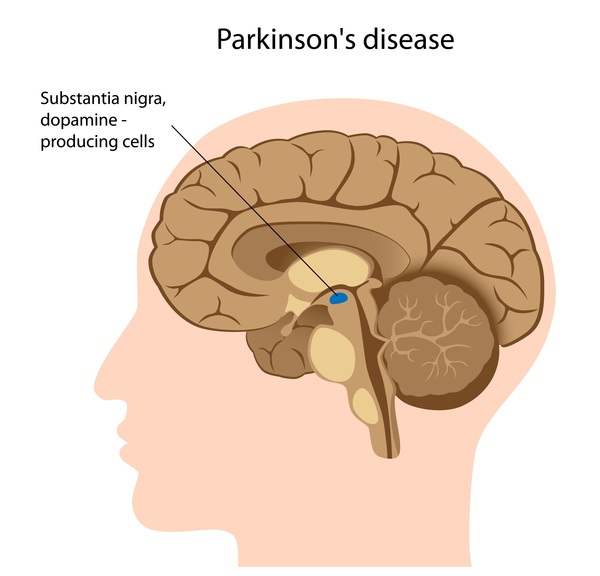Can Parkinson’s disease in men cause erectile dysfunction?
Erectile dysfunction
Erectile dysfunction is basically a disorder found in men which could be a sign of physical or psychological condition. The symptoms associated with this disorder is found in men’s reproductive organ i.e. inability to keep an erection firmer and longer enough during a sexual activity.
Erectile dysfunction is a treatable disorder which includes many possible methods such as natural remedies, alternative medicine, and prescription drugs. In this article, let us discuss about some faster ways to treat this disorder.
Causes of erectile dysfunction
There are many factors involved in male sexual arousal, including hormones, emotions, nerves, muscles, and the blood vessels. There are a number of factors that can contribute to erectile dysfunction. It is also possible for erectile dysfunction to be caused or worsened by stress and mental health concerns.
In some cases, erectile dysfunction is caused by a combination of physical and psychological factors. In some cases, anxiety about maintaining an erection may be caused by a minor physical condition that slows down your sexual response. A result of this anxiety may exacerbate the problem of erectile dysfunction or lead to it.
Parkinson’s disease

It is a degenerative brain condition related to aging, in which parts of the brain deteriorate. Parkinson’s disease is a progressive disorder that affects the nervous system and the parts of the body that are controlled by the brain. Symptoms of this disorder initializes slowly. A slightly noticeable shakiness on one hand could be the first symptom of this disease.
Cause of Parkinson’s disease
Despite several risk factors for Parkinson’s disease, including exposure to pesticides, genetics is the only known direct cause of Parkinson’s disease for now. Parkinson’s disease is classified as “idiopathic” when it is not caused by genetic factors (the word idiopathic comes from the Greek and means “a disease of its own”). In other words, they are unsure of the exact reason for it.
There are a number of conditions that look like Parkinson’s disease, when in fact they are actually parkinsonism (which refers to Parkinson’s disease-like conditions) caused by some psychiatric medication.
Treatment for Parkinson’s disease can affect sexuality
Parkinson’s disease is incurable, but most of the symptoms can be managed with medication or surgery. There is, however, the possibility that medications may reduce sexual desire and sexual response. It is mainly taken during the day when motor or physical functions are improved; low levels of medication taken at night may also have an adverse effect on sexual function. There is a rare side effect associated with some medications called hypersexuality (increased sexual desire). It is advisable to discuss all the pros and cons of treatment before starting.
Parkinson’s disease and Sexuality issues
A person with Parkinson’s may experience sexual problems for a variety of reasons, including the condition and the medications:
- The negative perception of my body
- Problems with sleeping
- A reduced sense of self-worth
- Mood disorders and grief
- Angry feelings and stress
- Issues with continence, constipation, and frequent and urgent urination.
Parkinson’s disease – sexual issues for couples
Parkinson’s may derail a couple’s sexual dynamics because of its demands and challenges. Issues may include:
- Parkinson’s disease may cause a person to take a more passive role in lovemaking due to their reduced mobility.
- Sleeping separate bedrooms may be necessary for couples who suffer from Parkinson’s since symptoms worsen at night. There are fewer opportunities for spontaneous sex under this arrangement.
- There may be firmly established roles between the couple (particularly those who have been together for a long time). As a result of Parkinson’s disease, each person’s roles can be drastically changed, and this sudden unfamiliarity may cause issues in the relationship, including sex.
- There may be friction between people due to how they handle their diagnosis and the daily demands of Parkinson’s. It is possible for communication problems to spill over into the bedroom.
- There are many ways in which Parkinson’s disease can disrupt a couple’s lovemaking routine. In the event that the couple does not make any changes in their sexual attitudes or habits, further problems are likely to occur.
Practical suggestions
- It is important to recognize and appreciate the emotional stress you are both experiencing, even if you are experiencing it in different ways. You should make every effort to show love, respect, warmth, and togetherness in a non-sexual manner.
- Discuss sexual needs honestly and openly. Regardless of the type of relationship problem, communication is the best solution.
- Changing routines can help to alleviate Parkinson’s symptoms, especially if you make love in the morning when you’re more mobile or when your symptoms are less pronounced (your ‘on’ time).
- To make love, focus more on the physical aspects – for instance, foreplay, touching, and kissing – rather than penetration.
- Discover and practice different, comfortable penetration positions for successful and pleasurable penetration.
- Change your sexual roles based on the abilities of you and your partner.
- Find new ways to stimulate physical feelings (touch, arousal, orgasm).
- Ensure that medication effects on sexual function are reduced by working with medical staff.
REFERENCES:
- https://my.clevelandclinic.org/health/diseases/8525-parkinsons-disease-an-overview
- https://www.ncbi.nlm.nih.gov/pmc/articles/PMC3229252/
- https://www.apdaparkinson.org/what-is-parkinsons/symptoms/sexual-effects/
- https://www.webmd.com/parkinsons-disease/guide/parkinsons-sexual-problems
- https://www.betterhealth.vic.gov.au/health/conditionsandtreatments/parkinsons-disease-and-sexual-issues
- https://www.karger.com/Article/Fulltext/331654
For more details, kindly visit below.